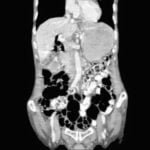
Preventing Eating Disorders:
Student corner:
Contributed by
Ms Aaliya Masoodi
Now we know how eating disorders are a serious medical condition that affects millions of people worldwide. Unfortunately, eating disorders are often stigmatized or misunderstood, which can make it difficult for people to seek help or support.
Preventing eating disorders is essential, and here are some tips you can follow to prevent the development of eating disorders.
1. Focus on Health Rather than Weight: Instead of obsessing over weight loss, shift your focus to living a healthy lifestyle. This means adopting healthier eating habits, exercising regularly, and getting enough sleep. Focusing on health rather than weight can help you develop a positive body image and prevent unhealthy behaviours like crash dieting, over-exercising, and binge eating.
2.Avoid Comparing Yourself to Others: Comparing yourself to other people can negatively impact your mental health. Social media platforms are often the breeding ground for negative self-talk and body shaming. Remember, everyone is unique, and there is no one-size-fits-all approach to health and happiness.
3.Seek Help When Needed: If you suspect that you or someone you know may have an eating disorder, seek professional help immediately. Eating disorders can be life-threatening, and early intervention can significantly increase the chances of recovery.
Treatment for these disorders generally involves a combination of therapy, medication, and nutritional counselling.
1. Cognitive behavioral therapy (CBT) is a common form of therapy used to treat eating disorders. This type of therapy helps people identify and change negative thoughts and behaviours that contribute to their disorder.
2. Medications are sometimes prescribed to help manage symptoms such as depression or anxiety that may be contributing to the disorder.
3.Nutritional counseling is also an important part of treatment for eating disorders. A registered dietitian can help individuals establish healthier eating habits and develop a meal plan that meets their nutritional needs.
In severe cases, hospitalization may be necessary to stabilize the person’s health and prevent any life-threatening complications. Overall, early intervention and comprehensive treatment are essential for recovery from eating disorders.
4.Build Positive Relationships: Building strong and supportive relationships with friends, family, and healthcare professionals can provide a critical source of support when facing challenges. Building positive relationships helps to reduce stress levels, which can help prevent unhealthy eating behavior and anxiety.
5.Develop Healthy Coping Mechanisms: It’s essential to find healthy and effective ways to cope with stressors, negative emotions, or difficult situations. Engage in activities that bring joy and relaxation like meditation, yoga, art, music, or spending time outdoors.
In conclusion, preventing eating disorders is possible by adopting healthy habits, avoiding comparisons, seeking help when needed, building positive relationships, and developing healthy coping mechanisms. Remember, preventing eating disorders is a lifelong process, and it’s essential to seek help and support if you suspect that you or someone you know may be struggling with an eating disorder.
References:
Fairburn C (2013). Overcoming eating disorders: the proven program to learn why you binge and how you can stop (2nd ed.). New York: Guilford Publications.
Join the mailing list!
Get the latest articles delivered right to your inbox!

